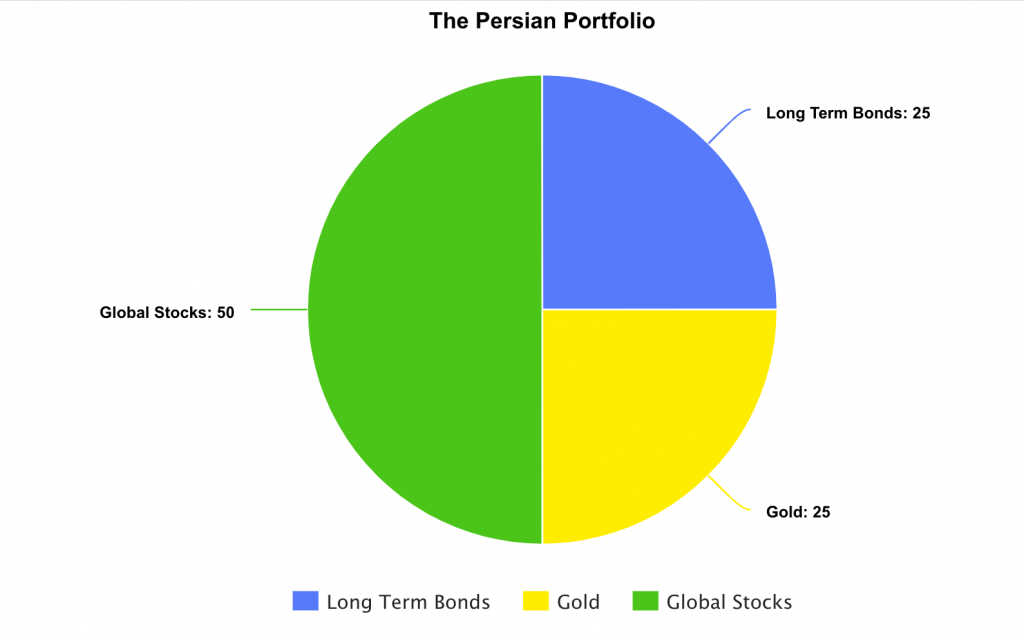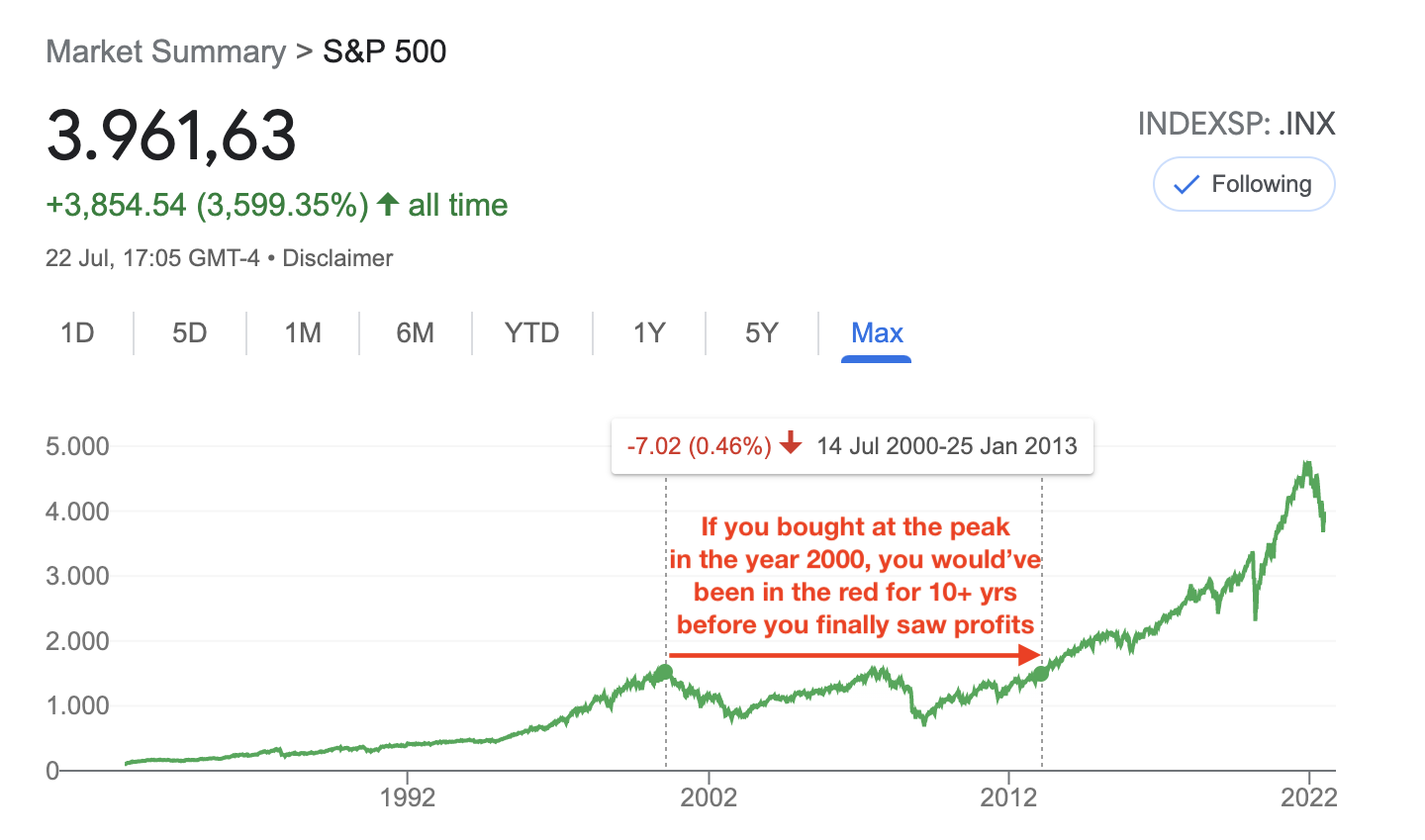Here’s a random collection of quotes that I’m saving
“Make something people want.”
— Paul Graham
“People can admit when they’re logically wrong. They will never admit when they’re emotionally wrong.”
— Paul Portesi
“Making a mistake is a net positive if you learn more from it than it cost you.”
— Pedro Domingos
“An idiot admires complexity, a genius admires simplicity.”
— Terry A. Davis.
“The most important part of every plan is planning on your plan not going according to plan.”
— Morgan Housel
“Friends are better than money. Almost anything money can do, friends can do better. In so many ways a friend with a boat is better than owning a boat.”
— Kevin Kelly
“The luckier you are, the nicer you should be.”
— Morgan Housel
“That which can be destroyed by the truth should be.”
— P.C. Hodgell
“Don’t try to maximize happiness. Minimize misery, and you’ll be happy.”
— Paul Portesi
“I’d like to live as a poor man with lots of money.”
— Pablo Picasso
“It is a sign of weakness to avoid showing signs of weakness.”
— Nassim Taleb
“Social anxiety results from being around people who are resolutely opposed to who you are.”
— Stefan Molyneux
“Everybody on LinkedIn appears happy, smiling, wears a tie, and signals docility, conformity, and optimism while they rot inside.”
— Marin Zhelezov
“Whenever I see a woman who’s happy, she’s married. And whenever I see a man who’s happy, he’s single.”
— Larry David
“A taste of freedom can make you unemployable.”
— Naval
“No other success can compensate for failure in the home.”
— J.E. McCulloch
“Science has emerged as new religion & citing ‘studies’ has become like quoting religious verses.”
— Zachariah Brown
“Big companies and repeat entrepreneurs struggle to go from zero to one because they refuse to restart at zero.”
— Naval
“To gain status in the world, we do all we can to appear as if we had already gained it.”
— François de La Rochefoucauld
“Normies are nice in words but hateful in deeds. I am nice in deeds but for them I appear hateful in words. And they deserve it.”
— Marin Zhelezov
“To make mistakes is human. To own your mistakes is divine. Nothing elevates a person higher than quickly admitting and taking personal responsibility for the mistakes you make and then fixing them fairly. If you mess up, fess up. It’s astounding how powerful this ownership is.”
— Kevin Kelly
“Think of the process of inflation as a very tall ladder that has been set on fire from the bottom. If you don’t climb fast enough, you’ll eventually be consumed in flames.”
— Craig Rowland
“Success is about honour, feeling morally calibrated, absence of shame, not what some newspaper defines from an external metric.”
— Nassim Taleb
“Those who make conversations impossible, make escalation inevitable.”
— Stefan Molyneux
“I would gladly give up my life for two brothers or eight cousins.”
— John Haldane (geneticist)
“The only part of you that hurts when you’re given the truth is the part that lives on lies.”
— Stefan Molyneux
“The same traits needed for huge success are the same traits that increase the odds of failure, so we should be careful praising winners or criticizing failures because they often made similar decisions with different degrees of luck.”
— Morgan Housel
“A populist is a smart person pretending to be dumb, and a liberal is a dumb person pretending to be smart.”
— Norwegian saying
“I have a sworn duty to my shareholders to maximize profit.”
— Martin Shkreli
“Some of this decade’s greatest heroes will never be known, and some of its most beloved people are basically shams.”
— Sam Bankman-Fried
“You know how they say no two snowflakes are ever alike? Well, I don’t think that’s true. I think a lot of snowflakes are alike… and I think a lot of people are alike too.”
— Patrick Bateman
“Entertaining characters are often deeply flawed.”
— Pixar training video on the art of storytelling
“The weak shows his strength and hides his weaknesses; the magnificent exhibits his weaknesses like ornaments.”
― Nassim Taleb
“When someone’s response is angrier than the question you asked warrants, they probably have something to hide. However, they may not only be hiding it from you…they may also be hiding it from themselves.”
— Neil Strauss
“The beauty of doing nothing is that you can do it perfectly. Only when you do something is it almost impossible to do it without mistakes. Therefore people who are contributing nothing to society, except their constant criticisms, can feel both intellectually and morally superior”
— Thomas Sowell
“There’s nothing on the internet anymore. It has become like TV. They deplatformed all the interesting people.”
— Roosh V
“The more neatly you fit into society, the less free you actually are.”
— Naval
“Research shows it’s almost impossible to become a drug addict without having a prior history of childhood trauma”
— Bessel van der Kolk
“Why does it feel like the people most convinced they know the truth are the least likely to have actually found it?”
— Sharif Aly
“The truth fears no investigation.”
— Unkown
“Someone who has been employed for a while is giving you the evidence of submission”
— Nassim Taleb
“Scream for attention and I’ll cover my ears. Whisper and I will listen.”
— Pedro Domingos
“Online life must serve the offline life”
— Jash Dholani
“Schools should include a class called Truth Is Hard, where u get bombarded with examples of confused eyewitnesses, incorrect public outrages, studies that failed to replicate, super convincing arguments that fall apart with one additional fact u didn’t expect, etc.”
— Aella
“The more secrets you have, the less happy you’re going to be.”
— Naval
“Learned helplessness is when you have failed, lost, or got defeated so many times that you stop even trying.”
— Marin Zhelezov
“When something has no prestige, the people who like it are more likely to have honest motives.”
— Paul Graham
“Bad luck is easy to identify when you fail, but good luck is easy to ignore when you succeed.”
— Morgan Housel
“Many women think that if they put out too quickly, their partner won’t respect them. This is not the case. It’s not about waiting for a certain quantity of time before having sex, it’s about waiting for a certain quality of connection.”
― Neil Strauss
“I use emotion for the many and reserve reason for the few.”
― Adolf Hitler
“Prescribing antidepressants without addressing the root cause is like spraying deodorant over a pile of shit.”
— Marin Zhelezov
“My whole adult life has been a search for quiet. I’ve had 3 different buildings soundproofed.”
— Paul Graham
“No school could teach being a great investor. It would be the most popular school with an impossibly high tuition.”
— Michael Burry
“Netflix could have been anything: personalized shampoo, custom dog food, one-of-a-kind baseball bats. I pitched all these ideas to my co-founder Reed Hastings on our daily commutes to work before we finally hit on the idea of video rental by mail.”
— Marc Randolph
“The education of today is humiliating. It produces an inferiority complex and artificially lowers the powers of man. Its very organization sets a limit to knowledge well below the natural level. It supplies men with crutches when they could run on swift feet.”
— Maria Montessori
“You’re only as smart as the smartest person in your community.”
— Jacob Lund Fisker
“I have always hated employment and the associated dependence on someone else’s arbitrary opinion, particularly when much of what’s done inside large corporations violates my sense of ethics.”
— Nassim Taleb
“The cruelest thing the elite do is lie about how they became successful.”
— Glenn Loury
“Rich people like quiet because quiet is better for thinking, and thinking is how you get rich.”
— Paul Graham
“I was always ready to share, but before external success, nobody cared to listen.”
— Naval
“Nothing in biology makes sense except in the light of evolution”
— Theodosius Dobzhansky
“Most people (and companies) need a near-death experience before they can really change.”
— Tony Fadell
“Lots of people were in the right place at the right time but failed because they were the wrong person.”
— Rob Henderson
“If you don’t have or want kids, I generally don’t care what you have to say about society. You’re not part of its continuation.”
— Stefan Molyneux
“The selfish reason to be ethical is that it attracts the other ethical people in the network.”
— Naval
“Personally, I enjoy hanging out with a mix of young, old, foreign, uneducated, and weird people.”
— Jeremy Howard
“We’ve made life freer for individuals and more unstable for families. We’ve made life better for adults but worse for children.”
— David Brooks
“I like to buy things second-hand. Old things are more interesting, often better made, and much cheaper. I got into this habit when I had no choice, but I kept it up because I prefer it.”
— Paul Graham
“I don’t care if the person I hire has a Computer Science degree. In fact, it’s a red flag usually. They overengineer and are slow. I like to hire auto didacts: fast and lean.”
— Pieter Levels
“I still have launch PTSD from early Falcon days. My limbic system twists my guts into a knot as we get closer to launch.”
— Elon Musk
“A bottom is a great place to grow from.”
— Neil Strauss
“I loath DSM diagnoses, the conceptualization of “mental illness” and how easy it is for a mental health professional to frame a reality for a person who is struggling emotionally. Future generations will look back at this time period with utter horror.”
— Dr. Roger McFillin
“You don’t know the true price of something until you try to sell it.”
— Nick Maggiulli
“Excuses are a promise of repetition.”
— Stefan Molyneux
“Education is cheap. It’s university that is expensive.”
— Nzube Olisaebuka Udezue
“Don’t maximize your intelligence; minimize your stupidity.”
— Paul Portesi
“Socializing for 3 hours a day is the 10,000 steps of mental health.”
— Anu Atluru
“I must find a way to become independent or die trying.”
— Cyrus Yari
“One can spend one’s whole life climbing the ladder, only to realize it’s been placed against the wrong wall.”
— Joseph Campbell
“I rebel, therefore, I exist.”
— Albert Camus
“More than anything, I want to make lots of stuff. I want to make articles, books, websites, music, companies, systems, apps, and especially new ideas. This shapes most of my life decisions. Saying no to almost everything, so I can have lots of time for making.”
— Derek Sivers
“I hate the news. None of these stories have relevance to my life. Reading them may be enjoyable, but it’s an enjoyable waste of time. They will have no impact on my actions one way or another.”
— Aaron Swartz
“The long-term success of a relationship depends far more on avoiding the negative than on seeking the positive.”
— Daniel Kahneman
“A habit of basing convictions upon evidence, and of giving to them only that degree or certainty which the evidence warrants, would, if it became general, cure most of the ills from which the world suffers.”
— Bertrand Russell
“I don’t know a single person who watches the Super Bowl”
— Steve Jobs
“The master has failed more times than the beginner has even tried.”
— Stephen McCranie
“I yearn for a simple life well lived, that lets me be available for the people I care about.”
— Shreyas Deshpande
“Don’t meet your heroes until they want to meet you”
— Anu Atluru
“The disgust a man gets when hearing a girl has 100 bodies is the same disgust a girl feels when she hears a man is an incel”
— Jake Shields
“Those who don’t build things will always complain about those who do.”
— Sean McClure
“I dive into things head first and ask questions later. This is how I’ve always learned.”
— Alex Forbes
“If someone brags about their success or happiness, assume it’s half what they claim. If someone downplays their success or happiness, assume it’s double what they claim.”
— George Mack
“You’re offended when you fear that it might be true.”
— Naval
“Profits are not something you take from others, but a small share you get to keep from the value you create for others.”
— Johan Norberg
“When making a decision, I will often stop and think: will doing this make my grandparents and my grandchildren proud of me?”
— Edmund Simms
“We can trade baseball cards back and forth at ever growing prices. We’ll feel richer, but we aren’t.”
— Edmund Simms
“There is no such thing as a failed soldier, dead or alive (unless he acted in a cowardly manner) — likewise, there is no such thing as a failed entrepreneur.”
— Nassim Taleb
“I’ve been self employed my entire life, never had to use an alarm clock for 8 years. Even laws are optional since I’ve been to 50 countries and can pick the laws I want. Basically I have no rules, so I had to make my own rules to keep my world in check.”
— Jeremy Noronha
“Things that have never happened before happen all the time.”
— Morgan Housel
“You want to be yourself, idiosyncratic; the collective (school, rules, jobs, technology) wants you generic to the point of castration.”
— Nassim Taleb
“For me there are only two kinds of women, goddesses and doormats.”
— Pablo Picasso
“The bushmen of Africa should release a test called the HQ or “hunting quotient” and then administer it to academics with high IQs to see if they can catch a gazelle with a spear or avoid being eaten by a lion.”
— Molson Hart
“Shallow men believe in luck. Strong men believe in cause and effect.”
— Ralph Waldo Emerson.
“Why does the US so often put Israel’s interests before its own?”
— Paul Graham
“There are two types of apologies. One by people relieving their conscience. The other is by those who are caught. Never trust those who apologize after being caught.”
— Nassim Taleb
“The larger the group, the worse the conversation.”
— Naval
“Our money was made by controlling expenses. You can make a lot of different mistakes and still recover if you run an efficient operation, or you can be brilliant and still go out of business if you’re too inefficient.”
— Sam Walton
“A sign of elitism is being well-rounded. Skilled in intellectual foreplay, raw athleticism, cultural literacy, grace under pressure, proper decorum, global cultural & financial literacy, ancient esoteric wisdom, steadfast integrity, discreet generosity, lifelong appetite for learning, curated networks, an appreciation for the arts, understated confidence & nonchalant elegance. It’s not about what you see — it’s about what you don’t see.”
— Shefali Manoj Patel
“I want to lose every debate. My favorite moments in life are when someone shows me a new perspective — a way of thinking I had never considered. It’s illuminating.”
— Derek Sivers
“Mastery is the best goal because the rich can’t buy it, the impatient can’t rush it, the privileged can’t inherit it, and nobody can steal it. You can only earn it through hard work. Mastery is the ultimate status.”
— Derek Sivers
“He who has a why can bear any how.”
— Friedrich Nietzsche
“If you’re obsessed with what you’re making, you can make other people obsessed with it too.”
— Christopher Nolan
“How many billion-dollar companies were never founded because we spend the first two decades of kids’ lives training them to slow down, to conform, and to achieve less.”
— Niels Hoven
“The cost of a thing is the amount of what I will call life which is required to be exchanged for it, immediately or in the long run.”
― Henry David Thoreau, Walden
“When you start to walk on the way, the way appears.”
— Rumi
“People frequently think that I’m very stupid. I don’t find this surprising, since I don’t mind if other people think I’m stupid, which means that I don’t adjust my behavior to avoid seeming stupid, which results in people thinking that I’m stupid.”
— Dan Luu
“You know how they say no two snowflakes are ever alike? Well, I don’t think that’s true. I think a lot of snowflakes are alike … and I think a lot of people are alike too.”
— Patrick Bateman
“The true end of industry is to liberate mind and body from the drudgery of existence by filling the world with well made, low priced products.”
— Henry Ford
“Thoughts breed arrogance, actions breed humility.”
— Anu Atluru
“I got out of this rat race when I looked around me and realized that even the winners were miserable.”
— Daniel Vassallo
“My empathy is very high. I can perceive people’s essence in an instant. I feel that I am forced to lick their soul against my will. And, my friends, most people taste horrible.”
— Marin Zhelezov
“I have more curiosity than time.”
— Derek Sivers
“The reason you feel alienated and alone is too many of your finite Dunbar number slots aren’t occupied by real people but by fictional characters, celebrities who don’t know you exist, and other parasocial relationships. Knowing the intricacies of your favorite TV show character or influencer while forgetting your best friend’s birthday maybe isn’t the recipe for happiness.”
— Rob Henderson
“People wanna be fuckable more than they wanna fuck.”
— Visakan Veerasamy
“Rather than judge others by their mistakes, I recommend a different standard: Judge people by how they respond to their mistakes.”
— Scott Adams
“In every aspect of life, I’ve just made sure to always show up regardless of how unfavourable the circumstances are. Because they’ve always been ridiculously unfavourable and I’d never have gotten anywhere otherwise.”
— Anas Ismail Khan
“When you tell the truth, you have nothing to keep track of. The world itself becomes your memory.”
— Sam Harris
April, 2024








